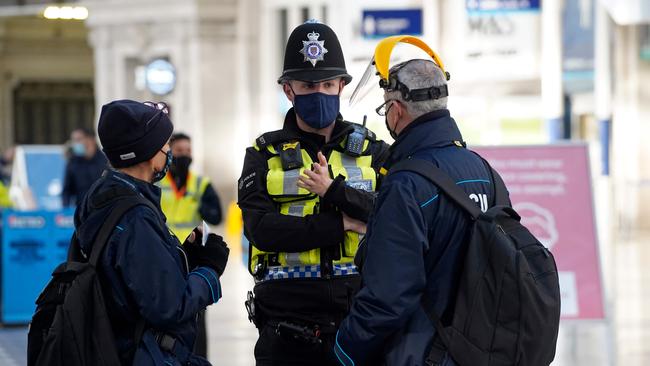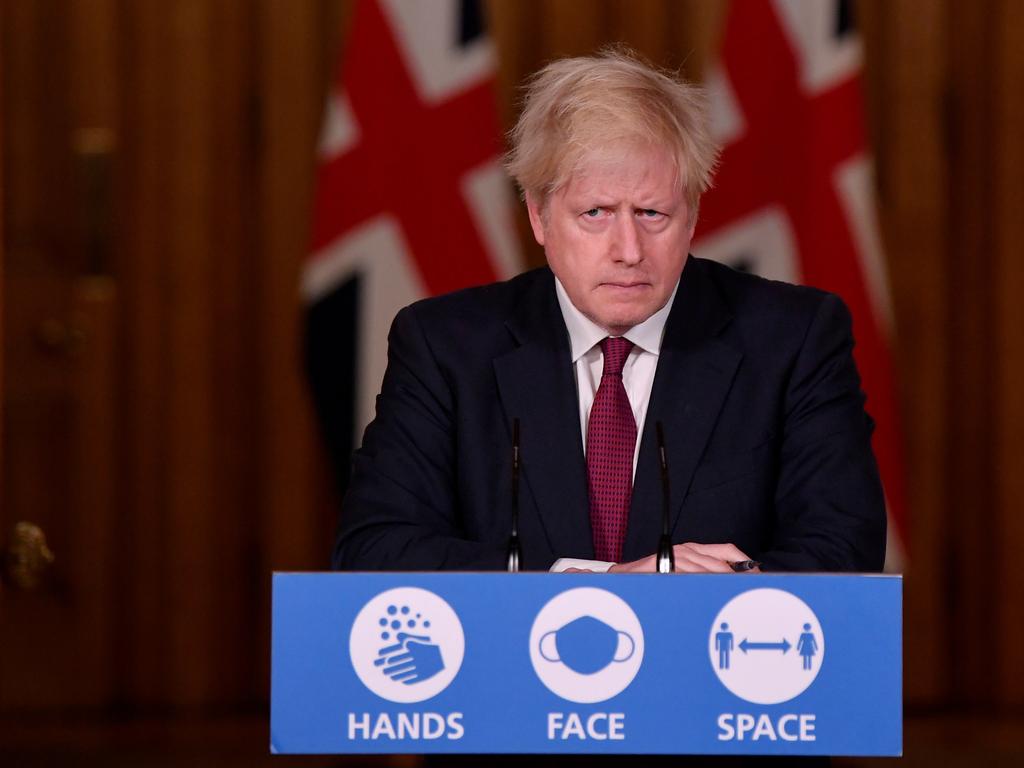Britain hit by travel bans with coronavirus ‘out of control’
Countries worldwide have banned arrivals from the UK due to a new coronavirus strain Britain said was ‘out of control’.

Countries worldwide banned arrivals from the UK on Monday over a new highly infectious coronavirus strain Britain said was “out of control”, as the WHO called for stronger containment measures.
British Prime Minister Boris Johnson was to chair the COBR emergencies committee on Monday night, after a slew of nations from Turkey to Canada blocked arrivals from Britain by air.
Transit country France moved to block people and goods crossing the English Channel, while The Netherlands said passengers arriving by ferry would blocked.
The emergency committee would “discuss the situation regarding international travel, in particular the steady flow of freight into and out of the UK,” a Downing Street spokesman said.
The ban on all but unaccompanied freight crossing to France comes as companies scramble to shift merchandise with days to go until Britain finally quits EU trade structures in the wake of Brexit.
Britain’s critical south coast port at Dover said it was closing to all accompanied freight and passengers due to the French border restrictions “until further notice”.
Alarm bells were ringing across Europe — which last week became the first region in the world to pass 500,000 deaths from COVID-19 since the pandemic broke out a year ago — as the new, even more infectious strain of the virus appeared to be raging in parts of Britain.
A WHO spokeswoman said that “across Europe, where transmission is intense and widespread, countries need to redouble their control and prevention approaches”. A German government source said restrictions on air travel from Britain could be adopted by the entire 27-member EU and that countries were also discussing a joint response over sea, road and rail links.
French President Emmanuel Macron, German Chancellor Angela Merkel, and EU chiefs Ursula von der Leyen and Charles Michel held a conference call on Sunday about the matter. Later, bans on flights from Britain were being implemented in the Americas, including by Canada, Chile and Argentina.
US officials, however, signalled they were holding off on the move for now. Despite growing concerns about the new strain, EU experts believe it will not affect the effectiveness of existing vaccines, Germany’s Health Minister Jens Spahn said. The assessment was shared by Britain’s Chief Medical Officer Chris Whitty.
Mr Johnson said the infectiousness of the new strain had forced him into locking down much of England over the Christmas period.
“Unfortunately the new strain was out of control. We have got to get it under control,” Health Secretary Matt Hancock told Sky News after Mr Johnson abandoned plans to ease containment measures over the festive season.
Scientists first discovered the new variant — which they believe is 70 per cent more transmissible — in a patient in September. And Public Health England notified the government on Friday when modelling revealed its full seriousness.
The novel coronavirus has killed more than 1.68 million people since the outbreak emerged in China last December. And with the onset of winter in the northern hemisphere, countries are bracing for new waves of COVID-19 with tighter restrictions, despite the economic damage such lockdowns wrought earlier this year.
The Netherlands is under a five-week lockdown until mid-January, with schools and all non-essential shops closed. Italy also announced a new regime of restrictions until January 6.
Around the world, the rapid rollout of vaccinations is now seen as the only effective way to end the crisis. Europe is expected to start a massive vaccination campaign after Christmas following the US and Britain, which have begun giving jabs with an approved Pfizer-BioNTech shot, one of several leading candidates.
A US expert panel recommended on Sunday those aged 75 and older should be the next vaccinated, along with 30 million “frontline essential workers”, including teachers, grocery store employees and police.
Initial doses have focused on healthcare workers and the elderly in nursing homes.
Russia and China have also started giving out jabs with their own domestically produced vaccines.
AFP






To join the conversation, please log in. Don't have an account? Register
Join the conversation, you are commenting as Logout